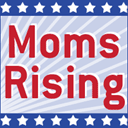"Inconveniently, though, the poor and near poor, whom we don’t care about, come attached to children, for whom we supposedly have some concern. So how are the kids doing?
Some facts from the National Center for Children in Poverty: one in five families is food-insecure, i.e., they don’t have enough food for everyone in the family at least some of the time. Health? Poor children are far more at risk than better-off kids: from secondhand smoke (32 percent vs. 12 percent of nonpoor children), low or moderate levels of lead in their blood (30 percent vs. 15 percent), lack of health insurance (16 percent vs. 8 percent) and lack of dental care (18 percent of poor kids hadn’t seen a dentist in the past year vs. 11 percent of nonpoor children, which is bad enough). Poor children are more likely to have asthma (18 percent vs. 13 percent). They are more likely to have missed five or more days of school for health-related reasons (20 percent vs. 15 percent). Twice as many poor parents report that their child has 'definite or severe' emotional, behavioral or social problems (10 percent vs. 5 percent). Poor kids are also more likely to be obese, to get insufficient exercise, to be diagnosed with ADHD or other learning disabilities and to have mothers who are in poor health themselves. No wonder they are less likely to be described by their parents as being in very good or excellent health (71 percent vs. 87 percent).
Poor children’s home lives are more precarious. Almost one in five children in poor or low-income families had moved in the last year, which means disrupted schooling and stress. In 2007, 1.7 million kids had a parent in prison, including one in fifteen black children. In 2008, around 460,000 children spent time in foster care. In 2009, 2.2 million were being raised by grandparents or other relatives.
Poor kids are more likely to be raised by single mothers and to have parents who didn’t finish high school or go to college. Even just living with other poor people seems to harm kids. Those who live in disadvantaged neighborhoods have lower reading scores; so do low-income kids who go to schools where the student body is 75 percent or more minority. Most black and Latino kids attend such schools. By the age of 2, poorer children have fallen cognitively behind those from wealthier families.
We’re looking at millions of kids, disproportionately black and Latino, who face a wide range of serious difficulties: how can that not affect their ability to do well in school? Moreover, the number of poor and near poor children is growing. In 2009 more than 1.2 million children entered poverty, even as school budgets are being cut all over the country: classes are getting bigger, teachers are being laid off, extracurriculars are being cut. You can see why the schools say they can’t do it all.
The parenting wars look like they are about children, but really they are only about each parent’s own child. That’s why they serve such a useful social function. Without them we might have to think about the frightening place America is becoming for ever more millions of kids. Who knows? We might even feel that we should do something about it."



















